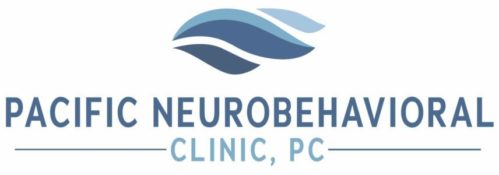Written by Stacy Ann Aquipel, PsyD
If you’ve noticed yourself feeling more blah or meh in the past year, you’re not alone. Last April, a viral New York Times article identified languishing as possibly the dominant emotion of 2021. The term was coined by a sociologist named Corey Keyes, who compared it to the concept of flourishing, or a combination of “feeling good about and functioning well in life.” On the contrary, languishing can be experienced as not just surviving, but not quite thriving – or perhaps not overwhelmed necessarily, but certainly whelmed. The French also have a similar expression: ennui. Given the unpredictability and prolonged nature of the COVID-19 pandemic, not to mention social, political, racial, and even climate-related concerns and collective stress and grief, it makes sense that many of us have felt as though we’re stuck in a holding pattern, trudging along with less motivation, energy, enthusiasm, or even control than in the “beforetimes.” Here are a few tips and reminders to consider as we continue to weather this storm together:
Reframe: Languishing May Be Beneficial
It may be helpful to keep in mind that, just like every emotion and sensation we experience as humans, languishing may serve important functions and provide us with opportunities to grow in self-awareness. For instance, if we take cues from nature, there are reasons why some animals hibernate in winter, and why many plants do not flower all year long. We may be experiencing a summer heat wave in SoCal at the moment, but emotionally and existentially speaking, we’ve had quite a long winter – and one that doesn’t seem to be letting up. Fittingly, it may actually be helpful for us to conserve our energy, slow down, and maintain a little extra protection from the elements in the current climate (even if that means putting on a few extra pandemic pounds).
Make It a Habit to Check In with Yourself
While some of the changes you may have experienced over the past year have been obvious, such as shifts in daily routines, social activities, and eating and sleeping patterns, other changes may be less visible. For example, you may have noticed becoming uncomfortable in crowds since lockdown and now prefer increased physical distance in public spaces. Or perhaps watching the news has made you more irritable or upset than before. Or, if you’re like me, it may take you longer these days to complete tasks (such as writing this blog post!). Checking in with your emotions, physical sensations, and comfort level in different situations over time may help you better identify your current needs and boundaries, as well as promote a sense of safety and security.
Be Gentle with Yourself and Those Around You
In times of stress, it’s common to become more self-critical and compare yourself to others (or to who you used to be). You may also become so focused on “getting back to normal” or increasing productivity that it becomes easy to dismiss the hardships you’ve undergone, as well as forget how you have changed. It may be beneficial – and kind – to remind yourself and your loved ones that we’re living in unprecedented and challenging times, and that it’s okay to adjust our expectations, boundaries, perspectives, and standards as new situations arise, as well as celebrate the small accomplishments we have made along the way. Frustration and anger may be contagious, but so are kindness and empathy, and we always have the choice to cut ourselves and others some slack.
Be Creative (And Spoiler: You Already Are!)
When Darwin talked about survival of the fittest, he wasn’t referring to physical strength; rather, he meant that those that can adapt the best to change are the ones that survive. Back in 2019, could you have even imagined what your current day-to-day life looks like? We’ve already had to exercise profound adaptability and imagination to get to where we are today, mostly out of necessity. Now that the current realities have had time to set in, we can tap into our creativity more intentionally. For instance, we can explore what has helped us recharge our emotional batteries – or at least what has helped us conserve what energy we have left in the tank! We can also consider all the innovative ways we have been able to keep in contact with those around us, or if we’ve been feeling more isolated, perhaps we can start planting seeds to reconnect, if that’s what we want. But for now, if we sense that languishing is a dominant state of being, we can approach it with curiosity and discover new ways to befriend it.
References
Grant, A. (2021, April 19). There’s a name for the blah you’re feeling: It’s called languishing. New York Times. https://www.nytimes.com/2021/04/19/well/mind/covid-mental-health-languishing.html
Keyes, C. L. M., Dhingra, S. S., & Simoes, E. J. (2010). Change in Level of Positive Mental Health as a Predictor of Future Risk of Mental Illness, American Journal of Public Health, 100(12), 2366-2371. https://doi.org/10.2105/AJPH.2010.192245
Leon, A. K. (2021, April 26). I’m not languishing, I’m dormant. https://austinkleon.com/2021/04/26/im-not-languishing-im-dormant/

